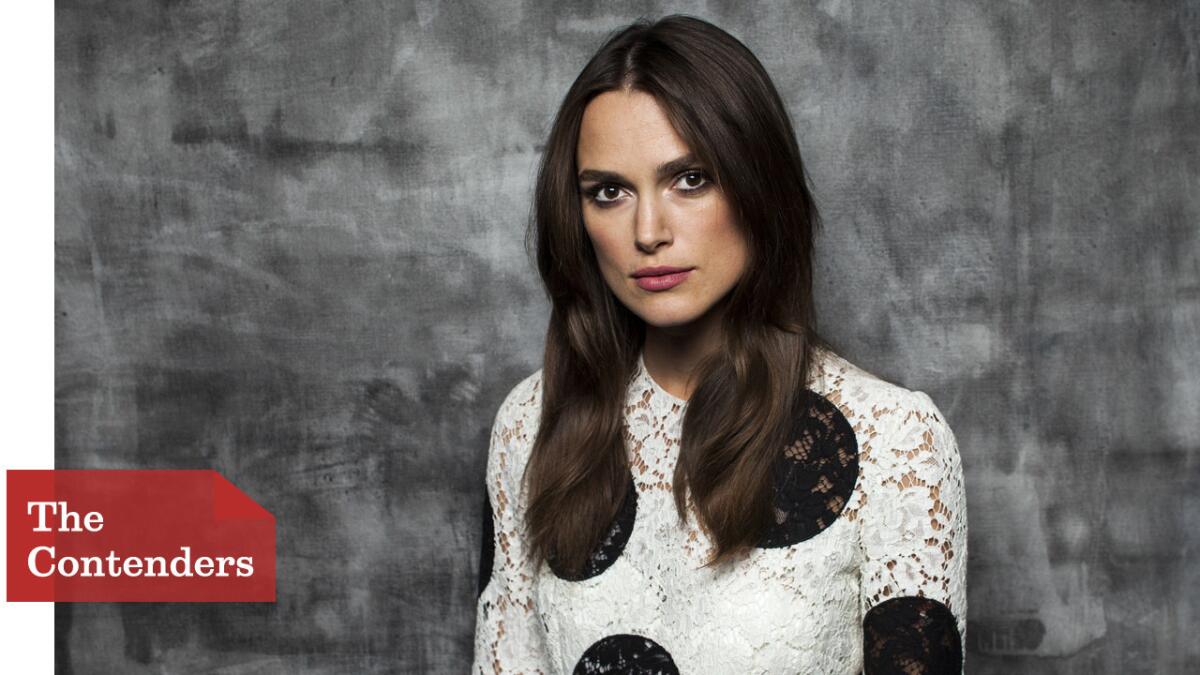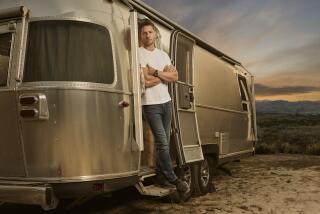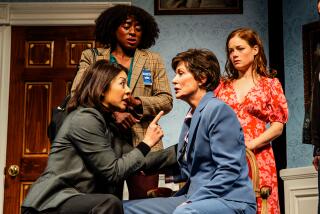The Envelope: Keira Knightley ponders acting, feminism and a new role as a mother

Keira Knightley has been in the Hollywood spotlight for years, but arguably 2014 was the year when she was not just seen but really heard. She acquitted herself nicely as a singer in “Begin Again,” earned a fourth Golden Globe nomination and a second Oscar nomination for “The Imitation Game,” and made headlines by taking a stand for feminism in words and deeds (like the topless unretouched photo of herself published in November in Interview). The Envelope spoke with the now mom-to-be about her changing roles, both on screen and in real life.
Does it surprise you to hear that you’ve been acting for more than half of your life?
No! I don’t remember wanting to be anything else. … For a while, I probably burned myself out by doing end-to-end-to-end jobs because I was so terrified it would stop — because it does, and it still may do. I have to pace myself. You have to try and grow and change, otherwise your audience won’t be interested.
In “Imitation Game,” you play Joan Clarke, the lone female cryptologist on Alan Turing’s team to break the Nazi Enigma code. He’s gay, which is illegal in England at that time, she’s devoted to a career she’ll have to give up if she gets married, so for a time they get engaged. Can there be marriages of the mind?
I definitely know a couple of people where I think that’s what happened. As you go along, partnership becomes incredibly important, and people often choose that kind of partnership over necessarily a romantic sort of love. I found that completely understandable.
It makes sense that Turing’s story drives “The Imitation Game,” but a whole movie about Clarke would be terrific too. Do you think we’re in an upswing for unexplored female stories?
No. There are very, very few stories told. Female stories and female voices are very often missed out on, completely. Very often in every section of culture women are lost; every actress will say the exact same thing to you. We’re all looking for these interesting, inspiring, complex creatures … but they’re very difficult to find.
So what should you be doing as an actress to rectify that?
It’s got to come from female writers, from female producers, from female directors — they’re the ones with the passion to tell stories and go out and get the money. Possibly I should be throwing my hat in that ring. But it means putting the producer’s hat on, not just the actor’s. Maybe that’s something I should do and will do. But I’m very lazy.
You made headlines recently for talking about feminism, and then there was the topless photo to raise issues about women’s bodies. Are you more vocal than you have been before?
Up until 2011, I would talk about feminism quite a lot in interviews and absolutely get laughed at by female journalists. On one hand, I completely understand that; it’s very difficult for anyone who models or objectifies their body to talk about feminism. On the other hand, you go, “No, there isn’t equal pay, there are horrendous domestic abuse problems in England and America, and every woman has a right to say that there aren’t enough female stories.” It’s incredibly important for media to continue the discussion and really push for it and don’t say, “That’s passé. Oh, no, that’s a problem of the past.”
So are you having a boy or a girl?
Nice try!
I ask because I’m wondering what you’re planning to teach him or her about gender roles?
I think it’s very important to raise boys who are feminists and very important to raise girls who don’t expect Prince Charming and allow men to be emotional and weak at points and strong at points. We’re looking for equality and not gender stereotypes. But the real answer is … I don’t know. It’s one of the thousand million intimidating things I’m thinking about lately.
More to Read
From the Oscars to the Emmys.
Get the Envelope newsletter for exclusive awards season coverage, behind-the-scenes stories from the Envelope podcast and columnist Glenn Whipp’s must-read analysis.
You may occasionally receive promotional content from the Los Angeles Times.










